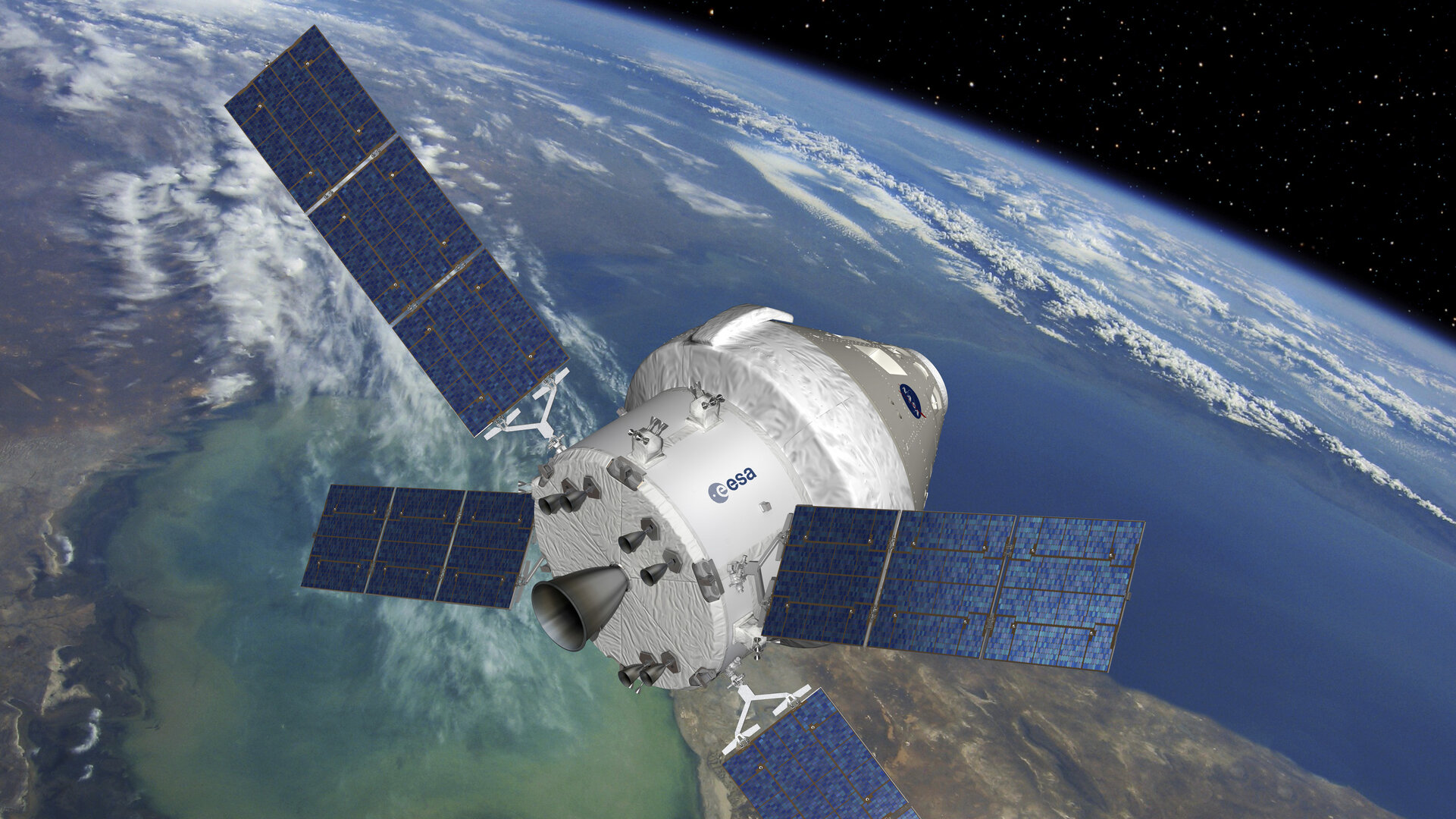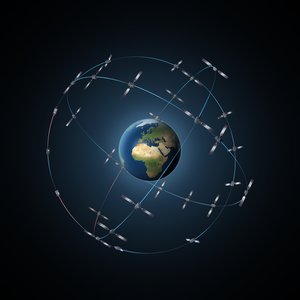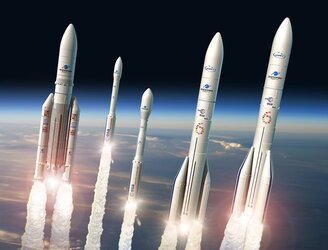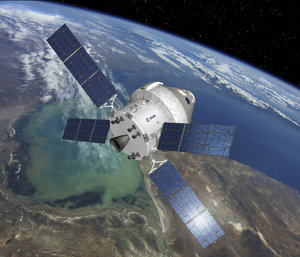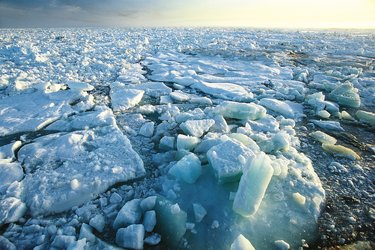Human Spaceflight and Robotic Exploration Programmes
European Exploration Envelope Programme (E3P)
Goal
Secure Europe’s central role in global space exploration, deliver new results in both basic and applied science and offer a compelling vision of global endeavour, enriching society and inspiring the next generations. In response to the Resolution on Europe’s Space Exploration Strategy adopted in Luxembourg in December 2014, it is proposed to consolidate exploration activities in a single European Exploration Envelope Programme (E3P) integrating the three ESA exploration destinations ‘as part of a single exploration process’.
Outcome
First, to make the political decision to join with our international partners in extending operation of the International Space Station to 2024 and, second, to approve funding (for the first Period of E3P, 2017–19). E3P integrates ESA’s existing space exploration efforts into an affordable, purposeful and exciting programme. It will advance Europe’s competence in both robotic and human exploration building on past key achievements. Structured in a series of steps (‘Periods’), starting with a transitional first period covering 2017–19 that by 2020, along seven main activities, will deliver:
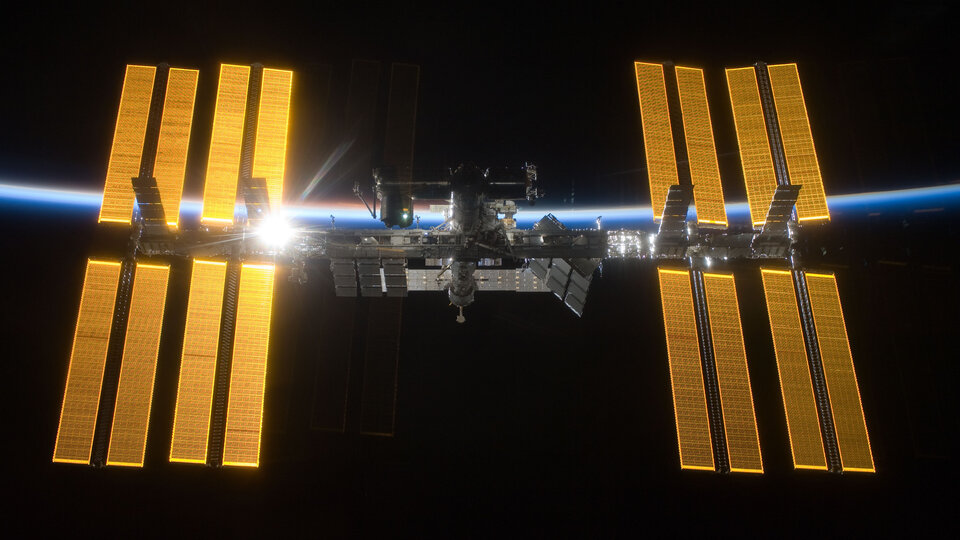
ISS
- Operation of Europe’s contributions to the ISS, allowing its efficient utilisation for science and technology development, including two more long-duration astronaut missions;
- The first mission of the European Service Module (ESM) for the NASA Orion spacecraft launched on the inaugural flight of the Space Launch System. This will fulfil Europe’s commitments until 2020 under current barter arrangements with NASA and see European technology embedded in NASA’s human space exploration programme for the first time;
- Manufacture of the second flight model of the ESM as part of the contribution to a barter with NASA to cover partly ISS Common System Operations Costs and securing future astronaut missions in 2021–24.
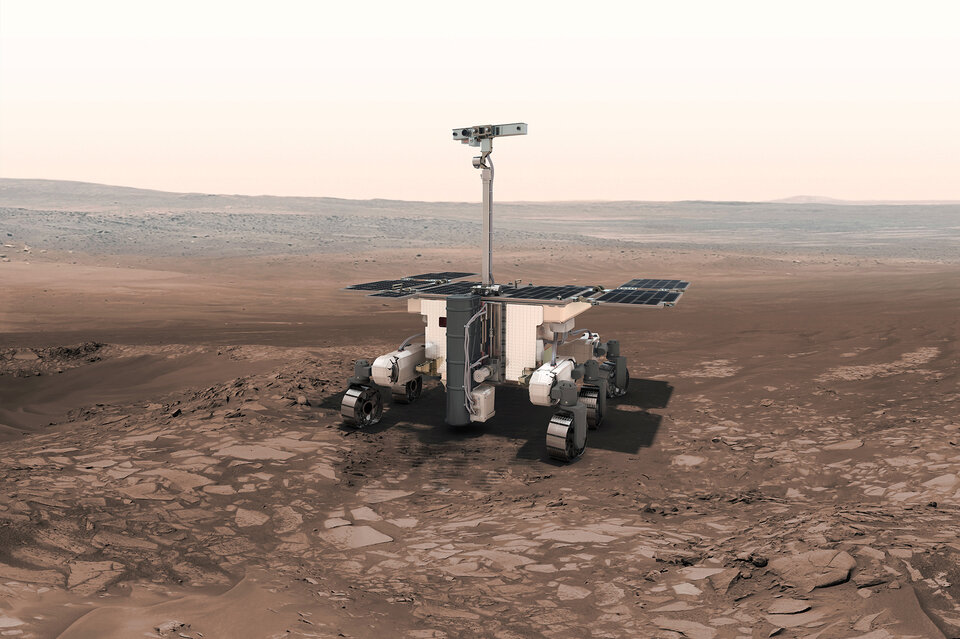
ExoMars
- Operation of the ExoMars Trace Gas Orbiter, in orbit around Mars since October 2016, exploring the atmosphere of Mars and providing a vital telecommunications relay capability for Mars missions of both ESA and other agencies;
- Complete the development of the ExoMars 2020 mission, including its advanced rover that will carry out the first sub-surface investigations of Mars in order to answer questions about whether life could or ever did exist on the Red Planet;
Luna-Resource Lander
- Provision of ESA contributions to the Russian-led Luna-Resource Lander (Luna 27) mission aiming at exploring for the first time the South polar region of the Moon and measuring the water believed to exist there and determine its origin;
- Build-up of a European lunar exploration user community to exploit the engineering/scientific data and the other benefits generated during the project.
Future Human Exploration
- Study and prepare European contributions to future human exploration activities both in low Earth orbit (LEO) and beyond leveraging on the ISS programme for example looking towards the international deep space habitat as the next step in the human voyage of exploration.
SciSpacE – Science in Space Environment
- Multiple research results from ISS, non-ISS space platforms and space environment analogues, which advance Europe’s knowledge base, support its economy (e.g. through the Microgravity Application programme – MAP) and help prepare future space exploration reemphasising excellence, relevance and timely delivery).
ExPeRT - Exploration Preparation, Research and Technology
- First phase of ExPeRT that will prepare exciting exploration missions and the technology needed to deliver them, including the first ‘round trip’ European mission to the planets.
Commercial partnerships
- The first European commercial partnership(s) in space exploration, drawing on the group of innovative ideas already proposed by industry.
 |
 |
 |
 |
Expanding humankind’s knowledge of our home, the Universe.
Impacts
ISS
- A unique platform for life and physical science research in space with 4000 highly skilled people in Europe employed on ISS-related activities and offering fresh opportunities to engage industry/science community not yet involved in the space sector.
SciSpace
-
A community of over 1200 scientists from ESA Member States and 60 industrial R&D partners are already involved in advancing Europe’s knowledge base and
helping prepare for future space exploration.
ExoMars 2020/Luna-Resource Lander
- Industry: hundreds of staff in dozens of companies working to consolidate technical expertise (leadership in areas such as drilling and sampling), acquire and demonstrate strategic capabilities (e.g. precise landing) for exploration; and maintain prime capability of European industry in the field of exploration;
- Strengthen the European planetary science community, generate discoveries and attract young researchers.
ExPeRT
- Increased European industrial capabilities in exploration technologies, in particular for sample return missions and position a wide-range of industrial players in Europe for participation in new exploration missions.


